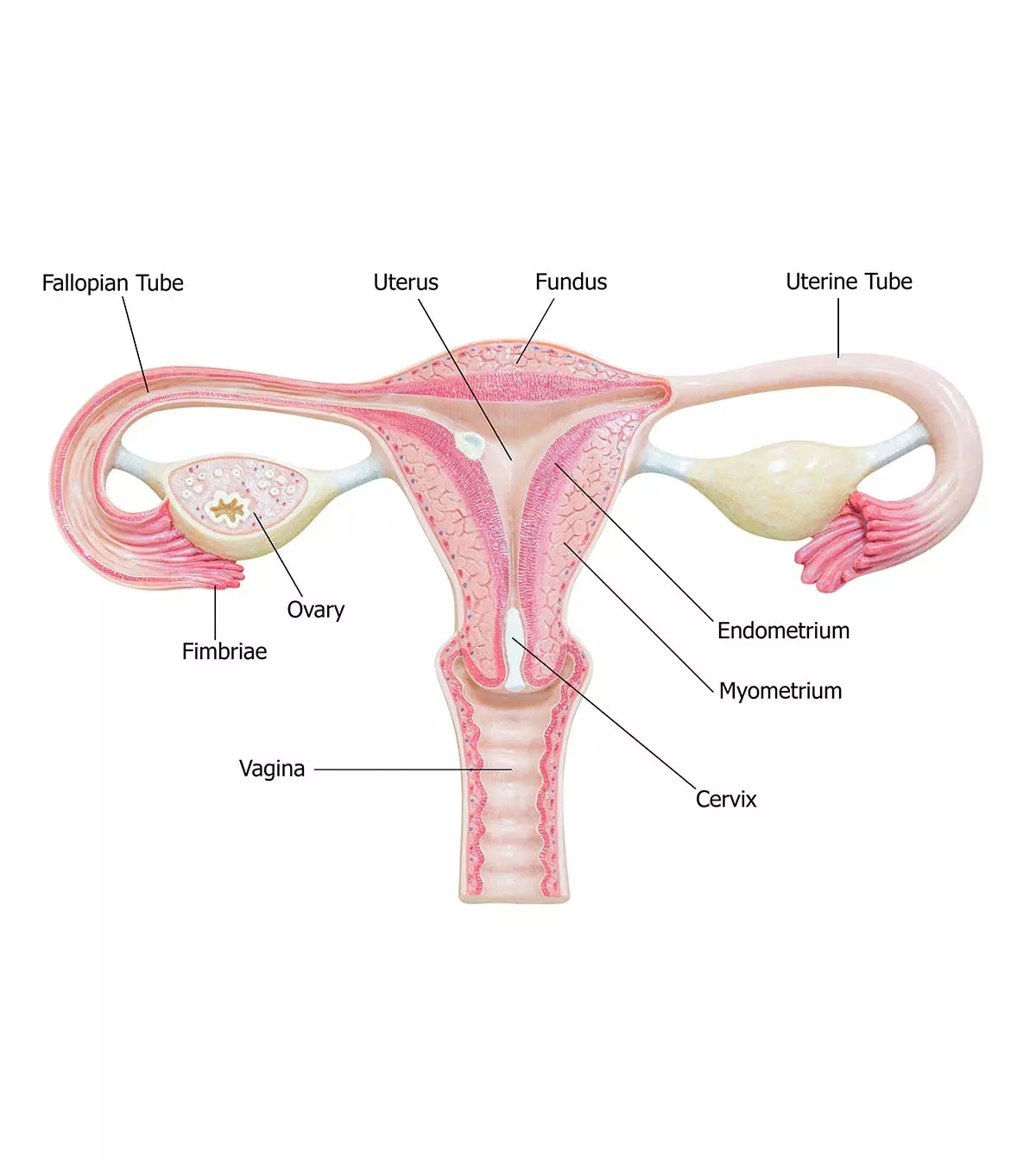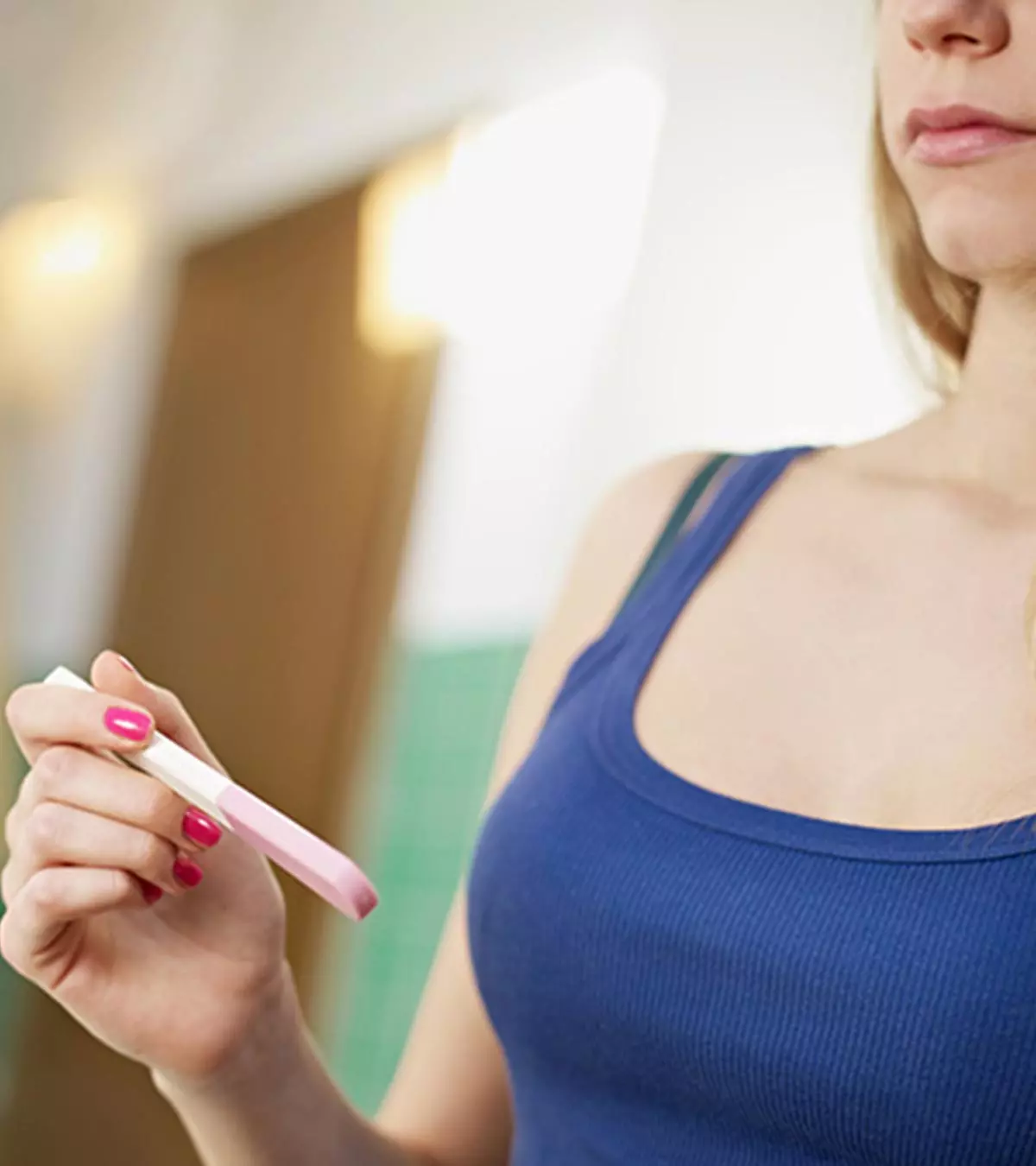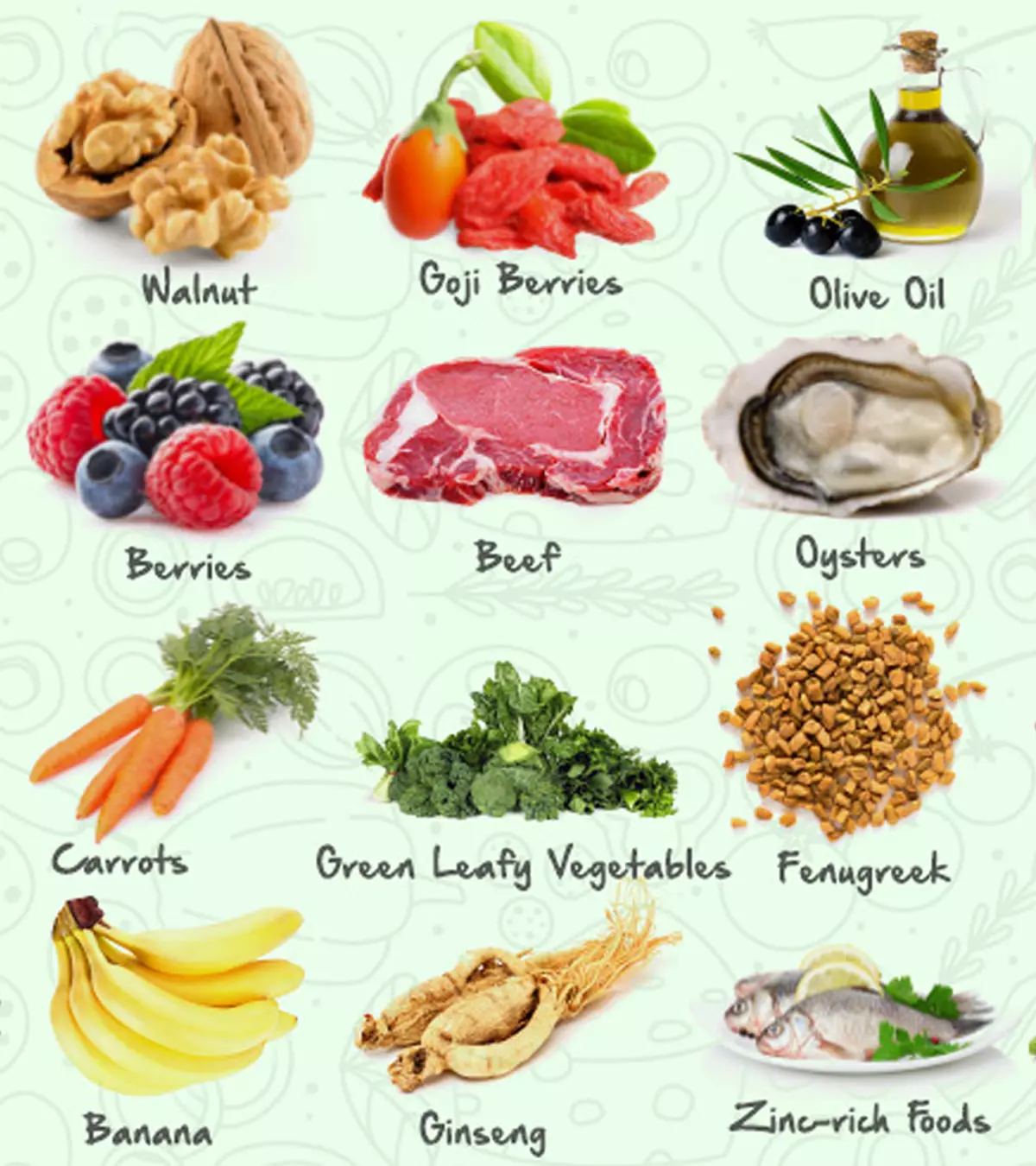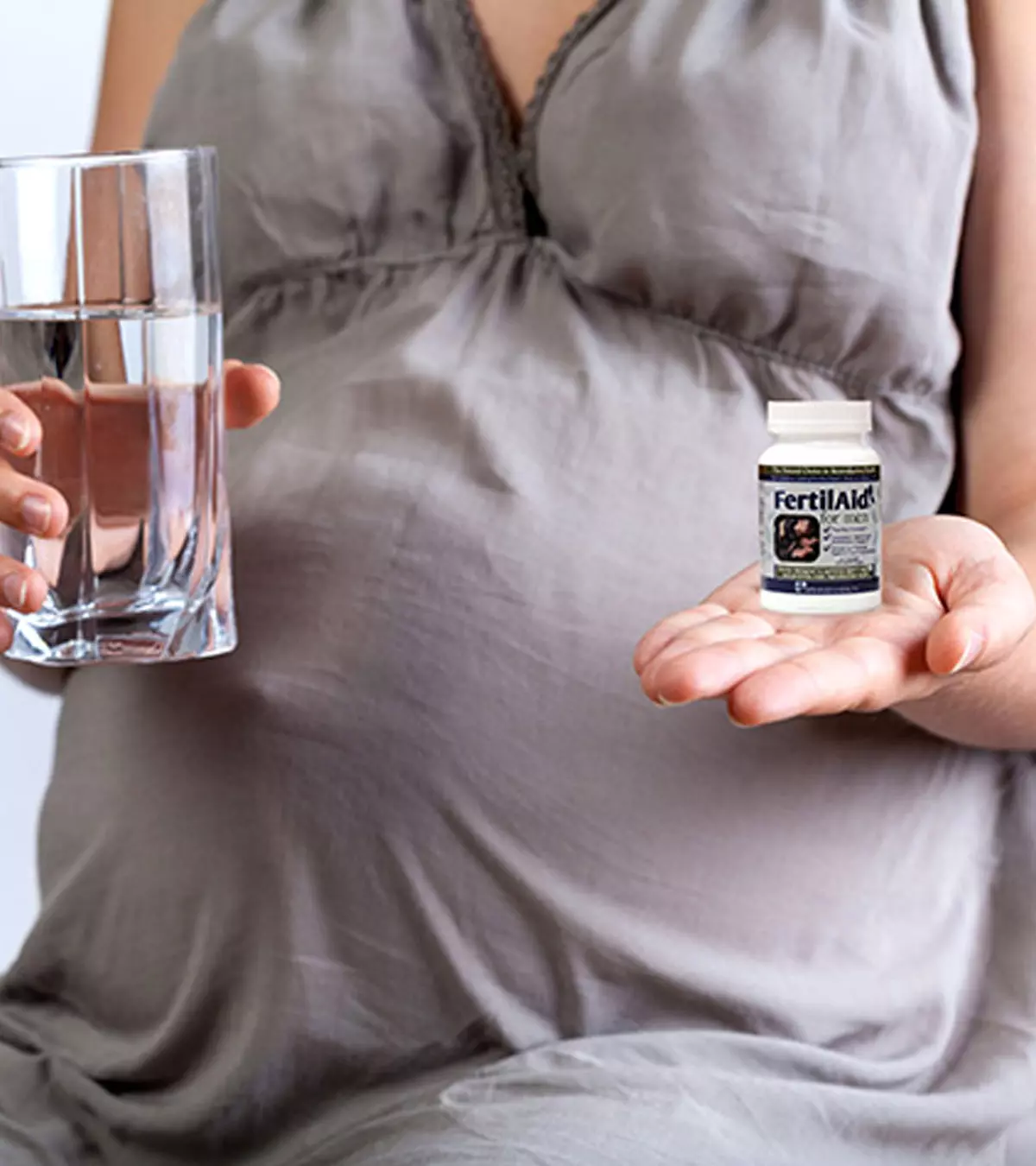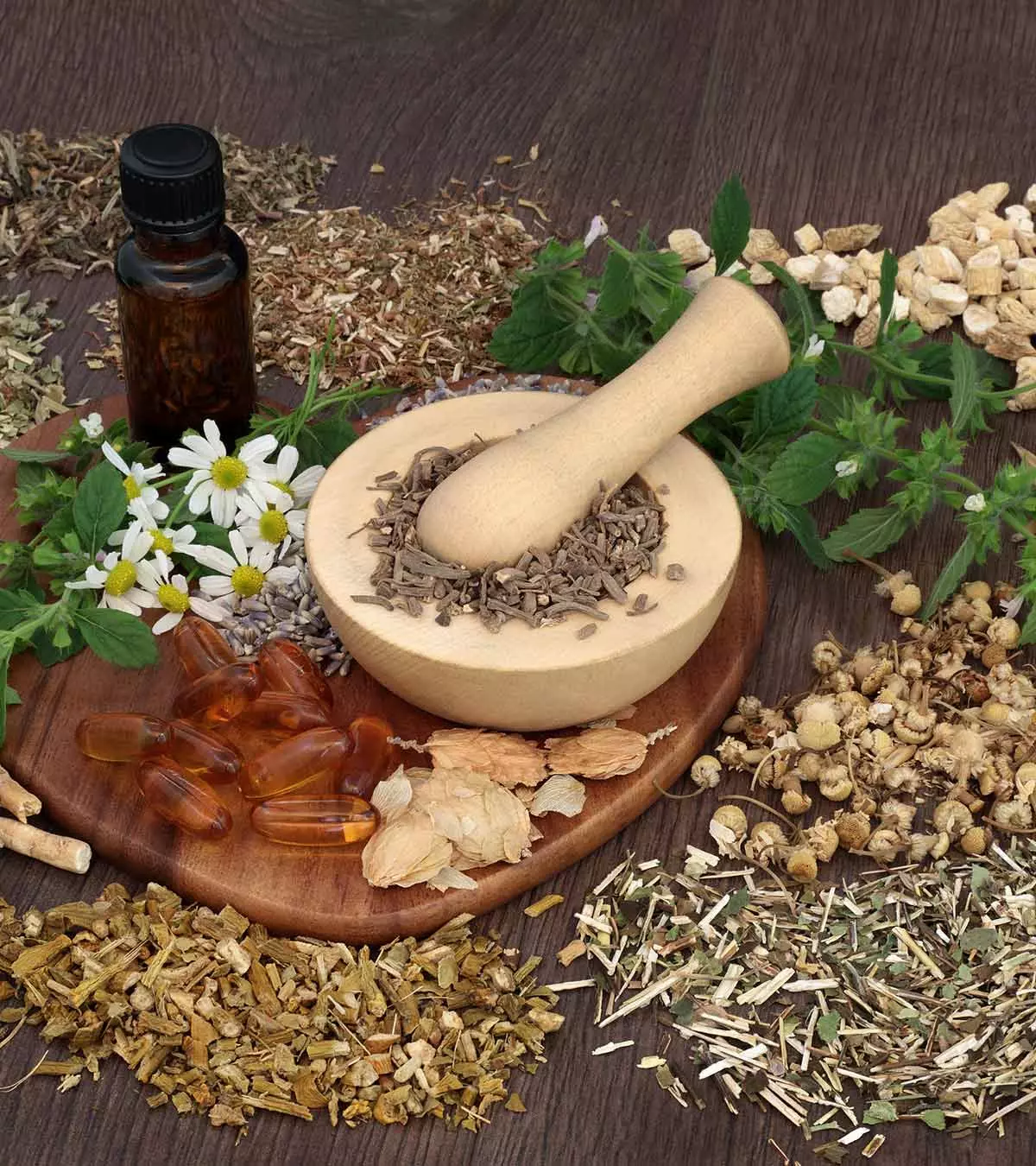
Several people from various cultures utilize and prescribe herbs for enhancing fertility. You may have even heard of “fertility herbs for men and women” being discussed online. However, there is no scientific evidence that they work; therefore, if you plan to use herbs for fertility, consult your doctor or a herbal medicine specialist beforehand.
In this post, we have included a list of herbs that promote fertility in both men and women.
Key Pointers
- Limited evidence on herbs’ effectiveness in curing infertility.
- Ashwagandha aids hormone regulation and reproductive health.
- Fertility herbs like Dong Quai, red raspberry, false unicorn, vitex, wild yam, and red clover may have adverse side effects.
- Herbs should be taken under the care of a physician.
- Personal health concerns and medications should be considered before taking herbs.
Can Herbs Cure Infertility?
There is no conclusive evidence to say that herbs cure infertility. However, they have been used in many cultures to support female and male reproductive health and fertility. Chinese and Ayurvedic medicines still encourage the use of some herbs and herbal blends to support hormonal balance and fertility cycles. Some herbs were also used in combination with in vitro fertilization (IVF) and intrauterine insemination (IUI)iA procedure in which a sperm is directly put inside the uterus to increase the probability of egg fertilization. (1).
FDA Does Not Regulate Herbal Supplements. Are They Safe To Take?
Herbal fertility supplements have limited US Food and Drug Administration (FDA) regulation. They are not subjected to the same scientific scrutiny and are not regulated as much as medications. Therefore, herbs and herbal supplements, though marked ‘natural,’ may still have side effects (2).
Always check with an experienced herbalist or naturopath before trying any herbs.
Do Herbal Medicine Practitioners Own Licenses Or Registrations?
Herbal medicine practice is not usually a licensed profession (3).
However, some providers take up a regional or national board certification. To stay safe, consult a practitioner who has a certification.
Delayed pregnancies and continuous fertility rate decline propel fertility supplements’ growth in the market. As a result, market analysts predict that the global fertility supplements market will grow at a compound annual growth rate (CAGR) of 7.9% from 2022 to 2030.
Moreover, while the natural supplement market is expected to experience steady growth, the segment for synthetic or a blend of synthetic and natural supplements is projected to grow substantially. The following graph depicts this growth trend.

Fertility supplements market growth rate in the US (2022 - 2030)
Source: Fertility Supplements Market Size, Share & Trends Analysis Report By Ingredient (Natural, Synthetic/Blend), By Product (Capsules, Tablets, Soft Gels), By End-use, By Distribution Channel, By Region, And Segment Forecasts, 2022 - 2030Fertility Herbs Used For Women
The herbs mentioned here and their effect on fertility have primarily been sourced from the book ‘Do You Want To Have A Baby: Natural Fertility Solutions And Pregnancy Care’ by Sarah Abernathy and Linda Page.
1. Ashwagandha (Withania somnifera)
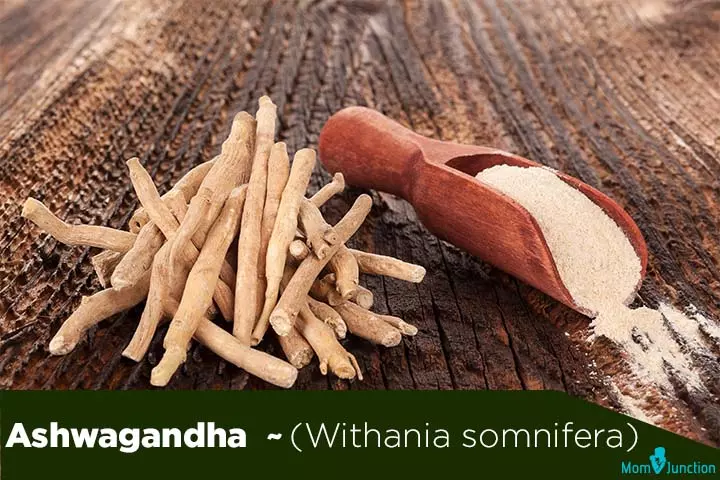
Also referred to as ayurvedic rasayana or rejuvenator, ashwagandha is believed to aid fertility. It is said to enhance the endocrine system, thus regulating the adrenal and thyroid glands, which may help balance the reproductive hormones. Ashwagandha is also believed to strengthen the ovaries, uterus, and immune system (4). Using ashwagandha may cause some side effects, such as nausea, headaches, drowsiness, stomach irritation, or diarrhea (5).
 Research finds
Research finds2. Red raspberry (Rubus idaeus)
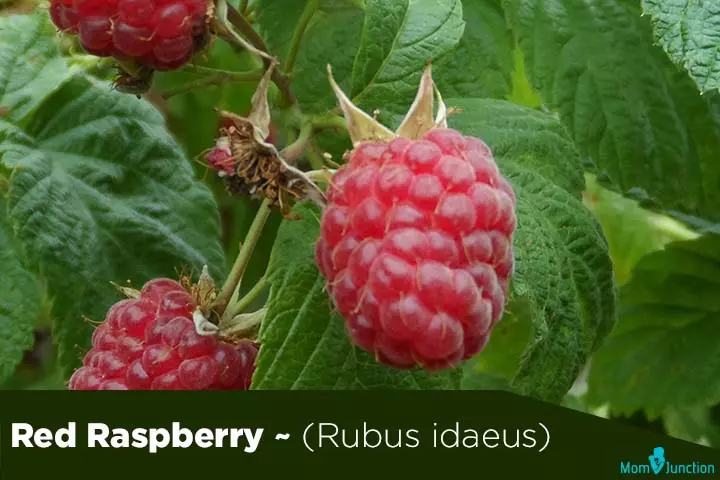
Red raspberry is said to have properties that enhance fertility naturally. It is a nutritive, astringent herb that might support uterine tissues (7). In some cases, it may lead to loose stools and nausea.
3. Red clover (Trifolium pretense)
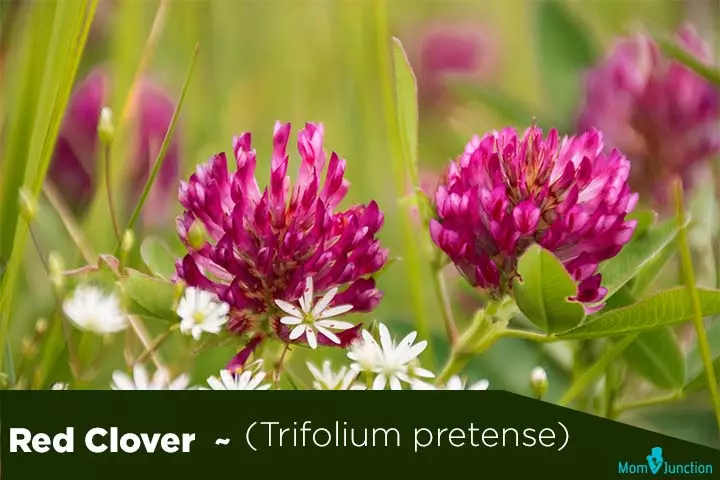
It has plant estrogens that may help boost fertility in women with estrogen deficiency (8). It may also help in correcting fallopian tube scarring due to its anti-inflammatory properties, is believed to regulate an irregular menstrual cycle, and can be a supportive herb in unexplained infertility.
Red clover is contraindicated in pregnancy and breastfeeding (9). So, if you believe you have conceived, stop drinking it. It is also contraindicated in conditions such as breast cancer, uterine cancer, ovarian cancer, endometriosisiA disorder in which the uterine tissue grows outside the uterus. , or uterine fibroids due to its estrogen-like properties.
4. Dong Quai (Angelica Sinensis)

Extensively used in Chinese medicine, this herbal medicine is said to regulate menstruation and ovulation, clear stagnation of blood (a major cause of infertility), and assist in toning the uterus (10). Do not take this along with blood-thinning medications. Stop using when affected by diarrhea, excessive menstrual flow, or hemorrhagic conditions. High doses can increase sun sensitivity, causing skin rashes, so wear sunscreen or stay out of the sun while taking it (11).
 Point to consider
Point to consider5. False unicorn (Chamalerium luteum)
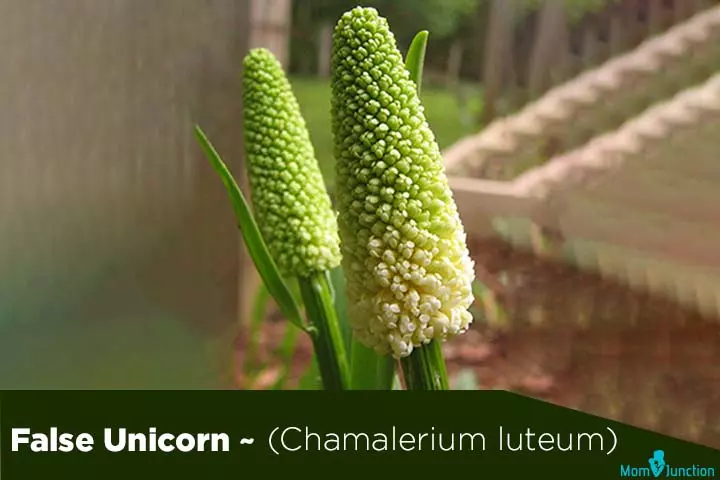
Although this herb is used for fertility, you should use it only when a qualified herbalist or midwife prescribes it.
It can act as a uterine tonic to reduce pelvic congestion. It may regulate menstruation and strengthen the uterine lining. Large doses could lead to gastrointestinal problems such as nausea and vomiting (12).
6. Wild yam (Dioscorea villosa)

Traditional Chinese herbalists use wild yam to bring warmth to a cold, stagnant uterus and to allow more free-flowing Qi (life force) to the body and female reproductive system.
It is used as one of the aphrodisiac herbs in some medical practices (13). You may have to use it before ovulation, i.e., the first half of the menstrual cycle. This herb is not advised if you have a history of estrogen-responsive cancers. If you have a history of hormone-related cancers, consult your doctor before using wild yam. While wild yam doesn’t act exactly like a hormone, it may have mild estrogen-like effects, and therefore, pregnant or breastfeeding women are advised to avoid it. People with protein S deficiency (a clotting disorder) should also check with a doctor, as wild yam might slightly increase clotting risks (14).
7. Vitex (Chaste tree)
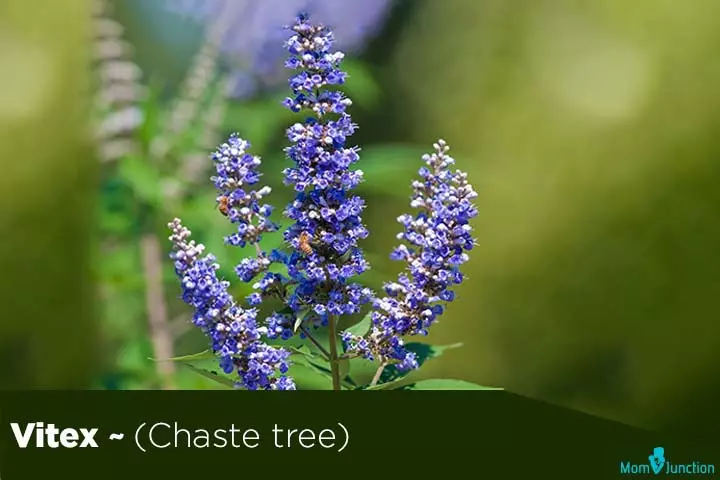
This herb is believed to normalize the ovulation process by stimulating the luteinizing hormone and minimizing the release of the follicle-stimulating hormone. Vitex is also thought to balance the estrogen and progesterone production in the body (15).
Vitex is a slow-acting herb supporting the body’s own hormone cycle rather than supplying any hormones itself. Studies suggest that the herb could help treat recurrent pregnancy loss (RPL), especially when linked to low progesterone (16). It should not be used along with prescription medications containing hormones.
8. Black cohosh (Cimicifuga spp)
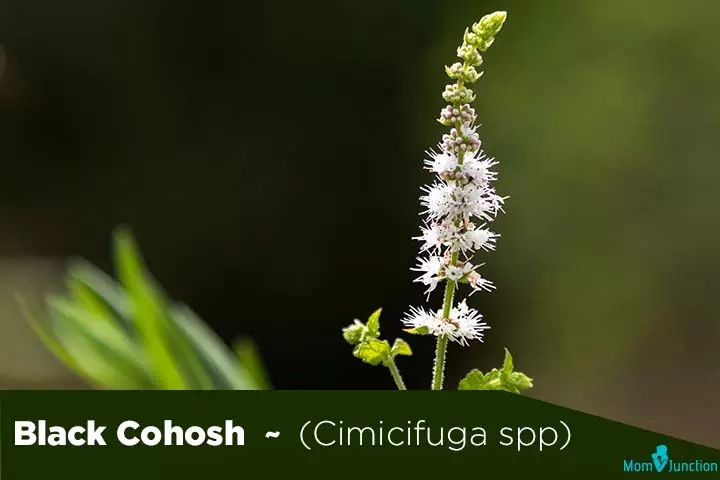
The toning herb is believed to help prolapsed uterus and fibroids. It might increase the estrogen levels in the body, which may minimize the chances of miscarriage in the early stages of pregnancy (17). Overdosage of this herb can lead to an upset stomach and vomiting. Black cohosh should not be used during pregnancy because it may trigger uterine contractions (18).
 Did you know?
Did you know?9. Stinging nettle
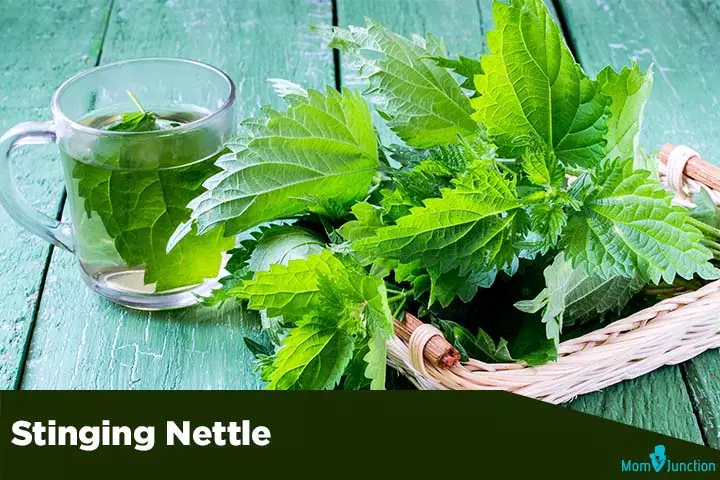
This herb is thought to nourish and tone the uterus while strengthening the kidneys and adrenal glands. It is also loaded with chlorophyll (acts as a detoxifier), which might assist in preparing your body for conception and pregnancy. A study evaluated the effects of Urtica Dioica (stinging nettle) in women with hyperandrogenism. It is a common endocrine disorder in women of reproductive age characterized by increased androgen production, often leading to infertility due to a lack of ovulation. Results showed a significant decrease in total testosterone and free testosterone after treatment, indicating that Urtica Dioica may help reduce androgen levels in these patients (19).
10. Motherwort (Leonurus cardiac)
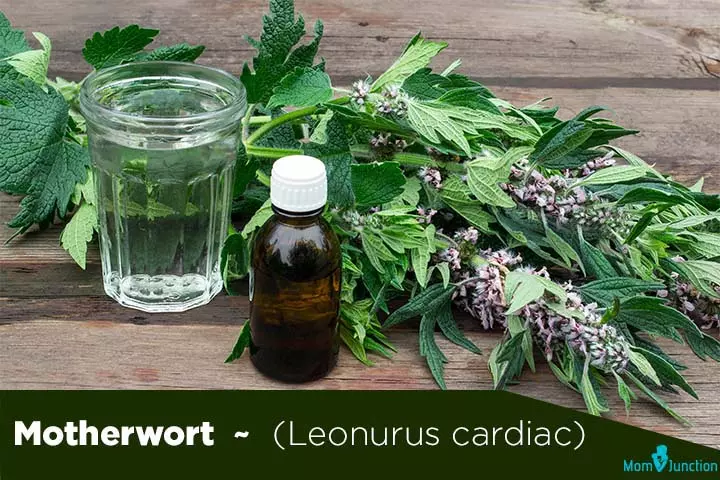
This herb is believed to stimulate the uterus and improve the uterine tone. It is also thought to bring on the menstrual cycle that may be delayed due to stress or anxiety (20). There is no research though, to explain its effect on fertility.
11. Evening primrose oil
This herb is believed to help improve the quality of cervical mucus, which is essential as it helps the sperm find their right path towards the egg. However, taking the herb only during the first half of your menstrual cycle (up to ovulation) is advisable. It is not advised to take this herb after ovulation as if you have conceived. The herb may not be safe since it causes adverse reactions during early pregnancy (21).
Fertility Herbs Used For Men
Fertility herbs are believed to help men overcome low sperm count, normalize sperm quality and quantity, libido, and other fertility problems.
12. Damiana (Turnera diffusa)
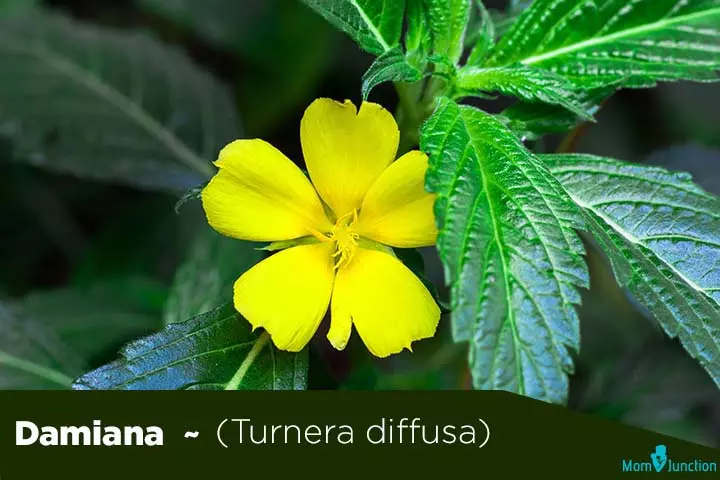
This is believed to have libido-promoting properties, which may be helpful for both men and women. It might help restore reproductive health and treat premature ejaculation or impotence. This herb is traditionally known as an aphrodisiac and is also used as a natural remedy for erectile dysfunction in men (22).
13. American ginseng (Panax quinquefolius)
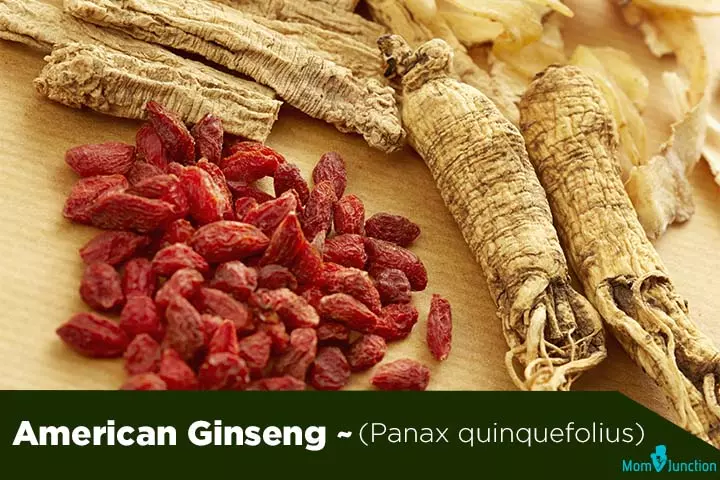
This herb is said to tone and nourish the male reproductive system and treat impotence. It is known to improve sperm count, motilityiThe ability of the sperm to move and swim. , and testosterone concentration too (23). Avoid combining it with blood-thinning medications. American ginseng may cause rare side effects like high blood pressure, insomnia, anxiety, headaches, nausea, or nosebleeds. To prevent low blood sugar, take it with food. People with high or low blood pressure, schizophrenia, bipolar disorder, or hormone-sensitive conditions (like breast cancer) should avoid it or use it carefully under a doctor’s supervision (24).
14. Peruvian maca (Lepidium meyenii)
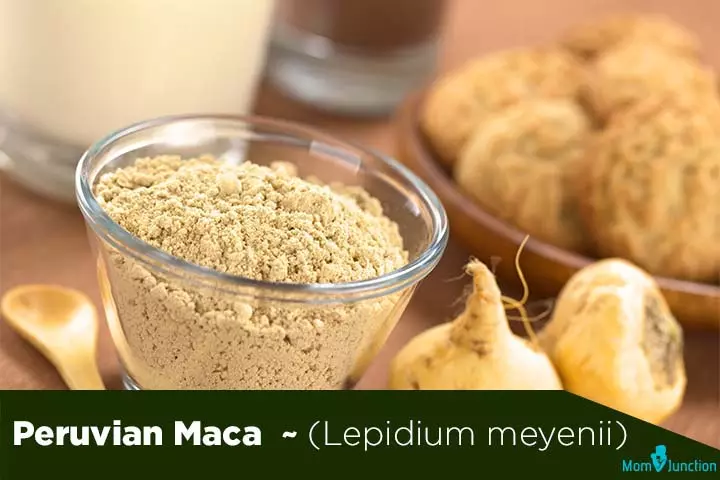
Peruvian Maca root is believed to improve libido, sperm count, and motility. It is an active endurance enhancer and may rectify erectile dysfunction (25). It might stimulate energy and should not be taken before bedtime.
15. Saw palmetto (Serenoa repens)

It has been traditionally used for improving prostate wellness, low libido, and impotence. It might also build and tone the male reproductive system (26). However, you should not take it in combination with any other fertility medications. Saw palmetto is generally safe when used correctly, with rare side effects like headache, nausea, or dizziness. In a few cases, it has been linked to bleeding during surgery and possible liver or pancreas issues, but it’s unclear if saw palmetto was the cause. Serious reactions are very uncommon (27).
16. Tribulus (Tribulus terretris)

It is said to help strengthen the reproductive system in both men and women. It may improve sperm count, motility, and erectile dysfunction. However, scientific studies that support these claims are scarce. Note that it may interfere with diabetes and blood pressure medications. This medication may cause stomach irritation. In rare cases, severe liver, kidney, or nerve damage has been reported, as well as priapism (a prolonged, painful erection) (28).
17. Horny goat weed (Epimedium grandiflorum)
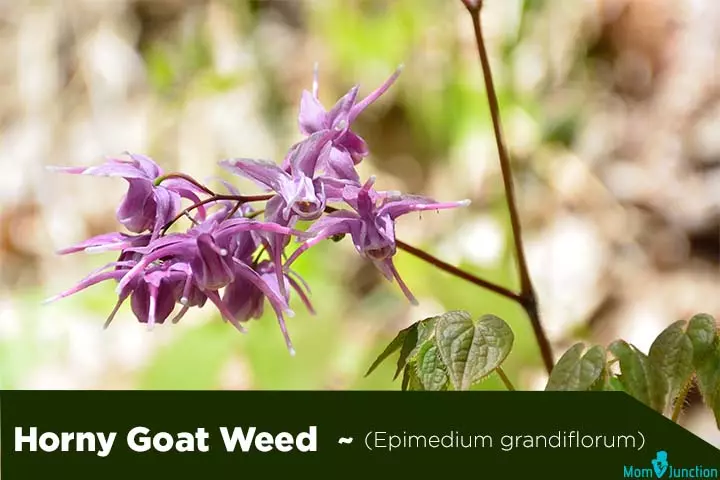
The herb has been traditionally used for treating impotence. It is believed to improve testosterone levels, thus increasing sexual libido (29) (30). Long-term use might lead to vomiting, nausea, headaches, thirst and dry mouth, breathing difficulties, and episodic spasms.
18. Astragalus (Astragalus propinquus)
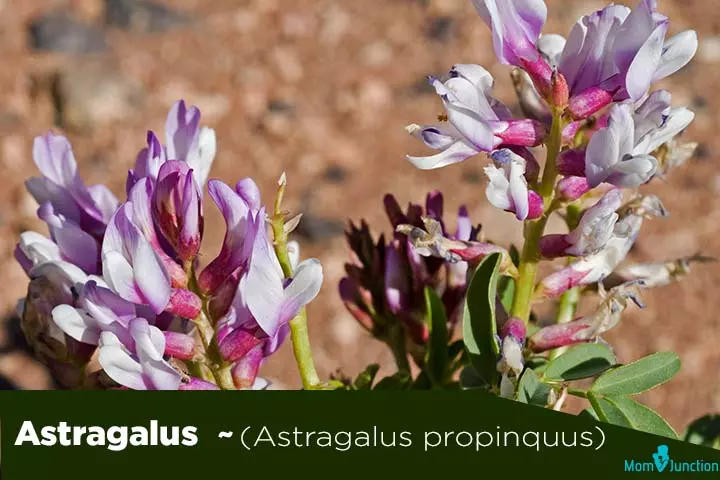
It might help in boosting immunity and improving sperm quality and motility (30) (31). The most common side effect of this herb is diarrhea. It may also influence blood sugar levels and blood pressure.
19. Yohimbe (Pausinystalia yohimbe)
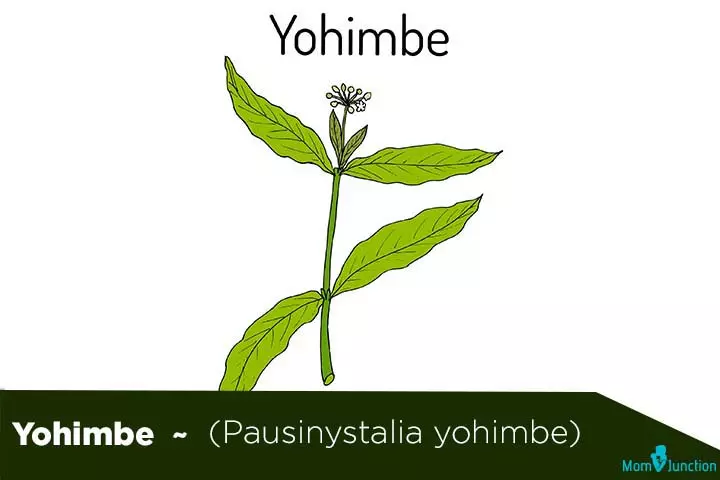
The bark is believed to support healthy circulation in the reproductive organs. It might, therefore, be used to treat erectile dysfunction and as a libido booster (30). Avoid using in case of low blood pressure; it can be toxic in high dosages.
20. Goji berry (Lycium barbarum)
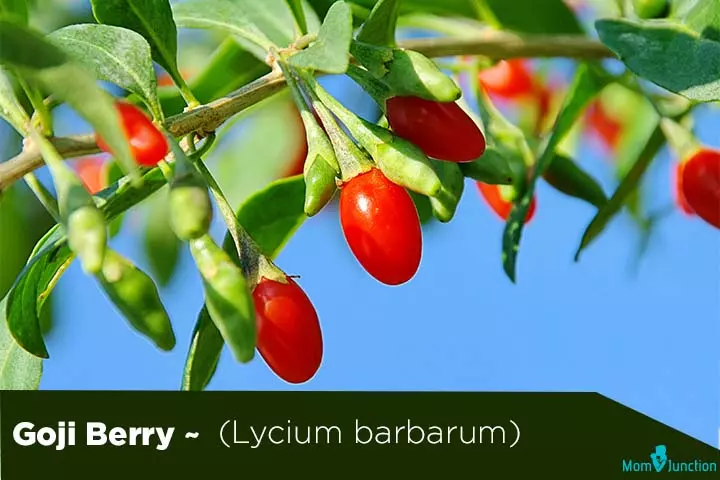
The dried Goji fruit might protect sperm from overheating (hyperthermia), thus helping preserve sperm quality and quantity. It may also support hormonal balance by supporting liver functioning (32). Avoid goji berries if your blood sugar and blood pressure levels are low, as they can further drop them (33).
21. Schisandra berry (Schisandra chinensis)
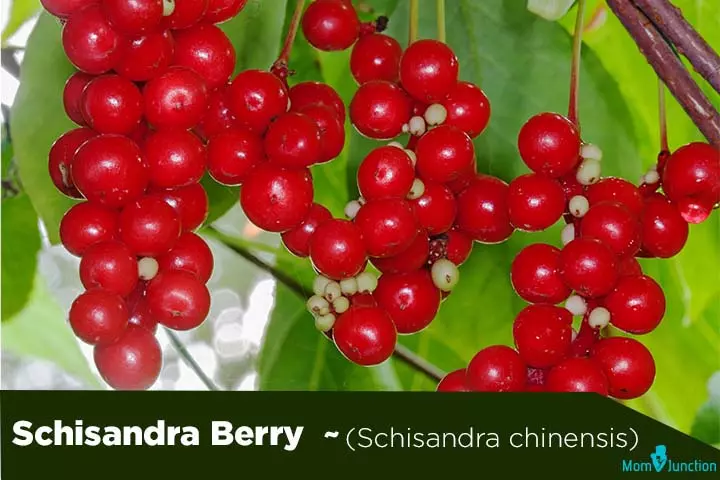
This herb is believed to help in enhancing sperm production. It also improved sperm motility (34). There is also a belief that it may increase enzyme production and the levels of glycogen, which might be essential for gonad and kidney health. However, there are no scientific studies to support these claims.
22. Shilajit
This herb has been proven to increase sperm count and motility. In a clinical evaluation conducted on infertile women, the administration of this herd exhibited improvement in spermia, total sperm count, and sperm motility in about half the test population. Also, the use of this herb has been attributed to enhancing fertility in Ayurveda (35). Side effects include sore throat, headaches, dizziness, nausea, vomiting, or diarrhea. Rarely, shilajit has been linked to a serious condition causing high blood pressure and low potassium. Allergic reactions are also possible (36).
22. Cinnamon
Research has shown that the administration of 75 mg/kg/day of cinnamon can increase the sperm population and benefit its motility and viability (37).
Consult a naturopath or herbalist or midwife for guidance before trying any of these fertility herbs. Most medical doctors, however, do not suggest herbs as treatments.
There are various fertility herbs for men and women available today. But there is no solid research supporting the facts about how effective these herbs are in enhancing fertility. Therefore, if you are interested in using fertility herbs, you may begin by comprehending the reason and purpose for wanting to use them. For best results, ensure you eat a balanced diet, exercise regularly, lead a healthy lifestyle, and take care of your emotional state. Also, it is best to consult a qualified herbalist or naturopath specialist to learn about the functionality of these herbs.
Frequently Asked Questions
1. How can I tell if a man is fertile?
According to the American Urological Association, you can determine the status of male fertility via methods such as an analysis of medical history accompanied by a physical exam, semen analysis, transrectal ultrasound, testicular biopsy, and a hormonal profile (38).
2. How long does it take for fertility herbs to show results in men?
The time taken to show results and the effectiveness of fertility herbs depend on several factors, such as the individual’s health, the specific herb used, and the underlying cause of the fertility issue. There is limited scientific research on using herbs to cure fertility issues. Therefore, it is strongly advised to consult your doctor or a certified herbalist before using such medication.
Infographic: Fertility Boosting Herbs For Men And Women
Have you been planning your pregnancy for a long time and dreaming of starting a family but are facing challenges due to fertility issues? To help improve your fertility and chances of conceiving, we present herbs to naturally boost your and your partner’s fertility. Read on!

Illustration: Momjunction Design Team
Illustration: Fertility Herbs For Men And Women: Things You Should Know

Image: Dall·E/MomJunction Design Team
Discover fertility herbs that enhance libido and reproductive health. Uncover effective options for men and women, including usage instructions for optimal results.
References
References
- Cheryl Lans et al; (2018); Herbal fertility treatments used in North America from colonial times to 1900 and their potential for improving the success rate of assisted reproductive technology.
https://pmc.ncbi.nlm.nih.gov/articles/PMC6047296/ - Dietary Supplements: What You Need to Know.
https://ods.od.nih.gov/pubs/DS_WhatYouNeedToKnow.pdf - Herbs for Fertility.
https://americanpregnancy.org/getting-pregnant/herbs-for-fertility/ - Bakhtiar Choudhary et al; (2015); Efficacy of Ashwagandha (Withania somnifera [L.] Dunal) in improving cardiorespiratory endurance in healthy athletic adults.
https://pmc.ncbi.nlm.nih.gov/articles/PMC4687242/ - Ashwagandha.
https://www.mskcc.org/cancer-care/integrative-medicine/herbs/ashwagandha - Ramin Nasimi Doost Azgomi et al; (2018); Effects of Withania somnifera on Reproductive System: A Systematic Review of the Available Evidence.
https://pmc.ncbi.nlm.nih.gov/articles/PMC5833251/ - Red Raspberry.
https://www.peacehealth.org/medical-topics/id/hn-2154002 - Red Clover (Trifolium pratense).
https://restorativemedicine.org/library/monographs/red-clover/ - Red clover.
https://www.mountsinai.org/health-library/herb/red-clover - Dong Quai.
https://medlineplus.gov/druginfo/natural/936.html - Dong quai.
https://www.mountsinai.org/health-library/herb/dong-quai - False Unicorn or Fairy Wand (Chamaelirium luteum).
https://newcropsorganics.ces.ncsu.edu/wp-content/uploads/2017/06/False-Unicorn-final-article-2012.pdf?fwd=no - Wild Yam.
https://medicinalgardens.web.unc.edu/wild-yam/ - Wild yam.
https://www.mountsinai.org/health-library/herb/wild-yam - Chaste Tree: Mother Nature’s Menstruation Remedy.
https://sites.evergreen.edu/plantchemeco/calling-all-ladies-mother-natures-remedy/ - Monique Aucoin; (2018); Improved progesterone levels and pregnancy following Vitex agnus-castus (chaste tree) supplementation in a case of recurrent pregnancy loss: A case report.
https://search.informit.org/doi/abs/10.3316/informit.926889912808960?download=true - Black Cohosh.
https://ssbea.mercer.edu/patelt/extract.htm - Black Cohosh.
https://www.aafp.org/pubs/afp/issues/2003/0701/p114.html - Farzad Najafipour et al; (2014); Therapeutic effects of stinging nettle (Urtica dioica) in women with Hyperandrogenism.
https://citeseerx.ist.psu.edu/document?repid=rep1&type=pdf&doi=a25624919aad99f69437d72fa12550f2e6a6e51a - Motherwort (Leonurus cardiaca).
https://restorativemedicine.org/library/monographs/motherwort/ - Sholeh Shahinfar et al; (2023); The effect of evening primrose oil on cervical ripening and birth outcomes: A systematic review and meta-analysis.
https://pmc.ncbi.nlm.nih.gov/articles/PMC9947258/ - Damiana.
https://www.peacehealth.org/medical-topics/id/hn-2077004 - Kar Wah Leung and Alice ST Wong; (2013); Ginseng and male reproductive function.
https://pmc.ncbi.nlm.nih.gov/articles/PMC3861174/ - American ginseng.
https://www.mountsinai.org/health-library/herb/american-ginseng - Gustavo F Gonzales; (2011); Ethnobiology and Ethnopharmacology of Lepidium meyenii (Maca) a Plant from the Peruvian Highlands.
https://pmc.ncbi.nlm.nih.gov/articles/PMC3184420/ - Mayumi Suzuki et al; (2009); Pharmacological effects of saw palmetto extract in the lower urinary tract.
https://pmc.ncbi.nlm.nih.gov/articles/PMC4002402/ - Saw palmetto.
https://www.mountsinai.org/health-library/herb/saw-palmetto - Tribulus terrestris.
https://www.mskcc.org/cancer-care/integrative-medicine/herbs/tribulus-terrestris - Menopause and natural therapies.
https://www.jeanhailes.org.au/health-a-z/menopause/menopause-herbs - Peter H C Lim; (2017); Asian herbals and aphrodisiacs used for managing ED.
https://pmc.ncbi.nlm.nih.gov/articles/PMC5422695/ - Wonnam Kim et al; (2015); Astragalus membranaceus augment sperm parameters in male mice associated with cAMP-responsive element modulator and activator of CREM in testis.
https://pmc.ncbi.nlm.nih.gov/articles/PMC4936768/ - Recep Dursun et al; (2015); The protective effect of goji berry extract in ischemic reperfusion in testis torsion.
https://pmc.ncbi.nlm.nih.gov/articles/PMC4402873/ - Goji.
https://medlineplus.gov/druginfo/natural/1025.html - Keshab Kumar Karna et al; (2019); Signaling Pathway in Testes of Varicocele-Induced SD Rat.
https://www.mdpi.com/1422-0067/20/22/5785 - T K Biswas et al; (2010); Clinical evaluation of spermatogenic activity of processed Shilajit in oligospermia.
https://pubmed.ncbi.nlm.nih.gov/20078516/ - A Quick Introduction to Shilajit.
https://health.clevelandclinic.org/shilajit-benefits - Arash Khaki; (2015); Effect of Cinnamomum zeylanicumon on Spermatogenesis.
https://pmc.ncbi.nlm.nih.gov/articles/PMC4376985/ - What is Male Infertility?
https://www.urologyhealth.org/urology-a-z/m/male-infertility
Community Experiences
Join the conversation and become a part of our nurturing community! Share your stories, experiences, and insights to connect with fellow parents.
Read full bio of Jacky Bloemraad-de Boer
Read full bio of Rebecca Malachi
Read full bio of Swati Patwal
Read full bio of Lorraine Teron






